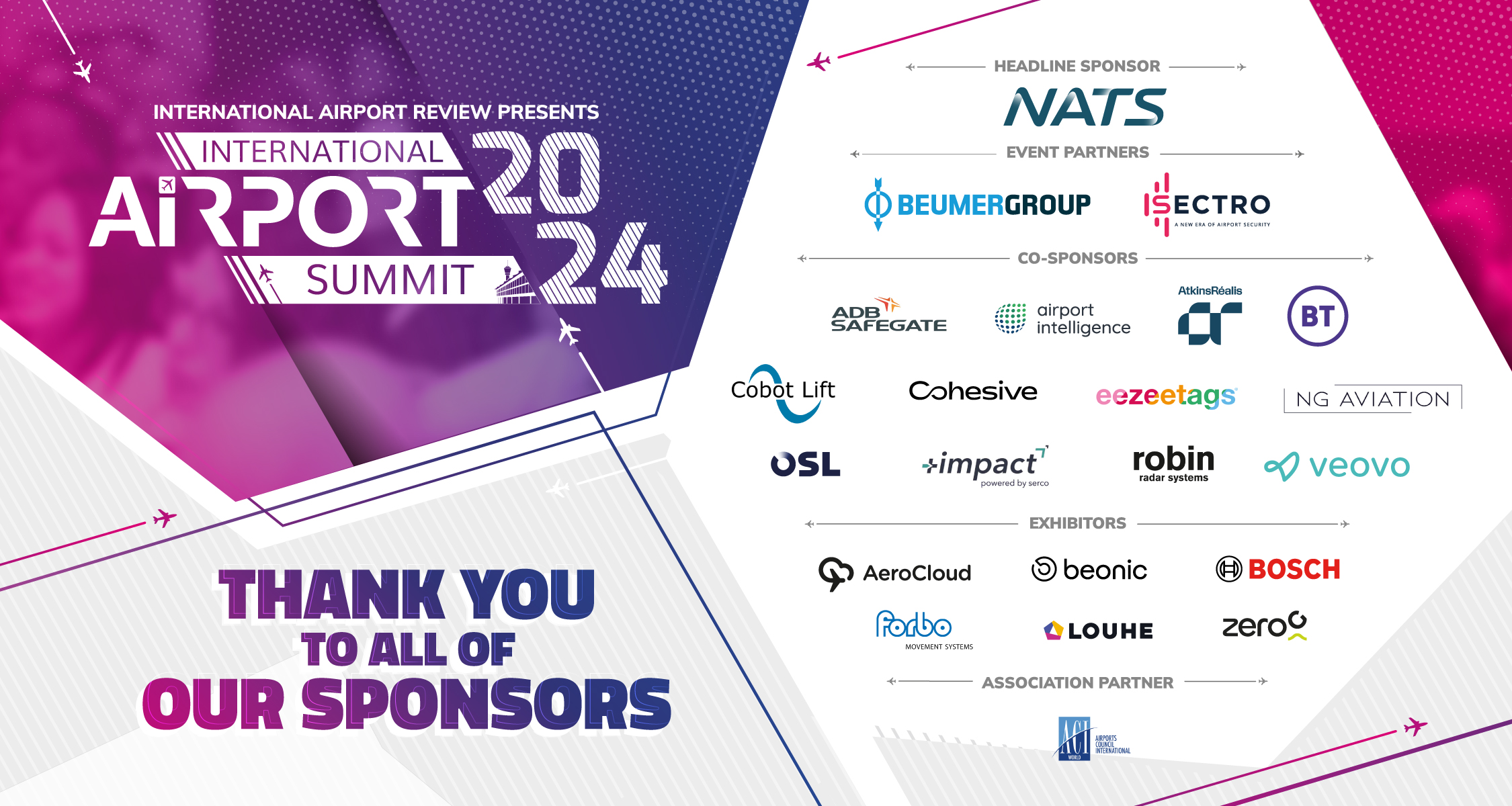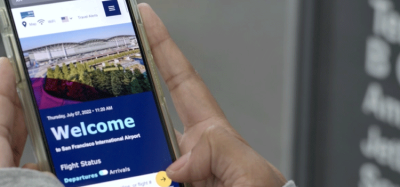Navigating the turbulent skies: Insights from the Airport Executive Forum at the International Airport Summit 2024
- Like
- Digg
- Del
- Tumblr
- VKontakte
- Buffer
- Love This
- Odnoklassniki
- Meneame
- Blogger
- Amazon
- Yahoo Mail
- Gmail
- AOL
- Newsvine
- HackerNews
- Evernote
- MySpace
- Mail.ru
- Viadeo
- Line
- Comments
- Yummly
- SMS
- Viber
- Telegram
- Subscribe
- Skype
- Facebook Messenger
- Kakao
- LiveJournal
- Yammer
- Edgar
- Fintel
- Mix
- Instapaper
- Copy Link
Posted: 17 December 2024 | International Airport Review | No comments yet
The Airport Executive Forum keynote panel at the International Airport Summit 2024 provided a captivating glimpse into the multi-faceted world of airport leadership, examining the pressing challenges, emerging opportunities, and strategic imperatives shaping the aviation industry.
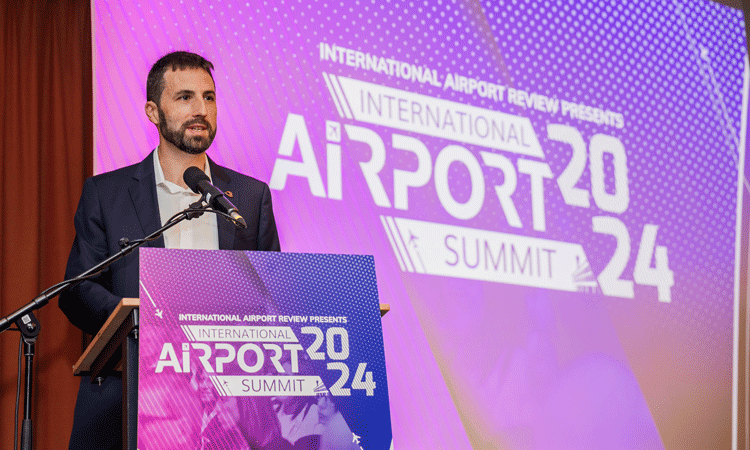

C: IAR.
At the International Airport Summit 2024, during the Airport Executive Forum, Thomas Romig, Chief Operations Officer of Brussels Airport; Chris Woodroofe, Managing Director of Manchester Airport; Piervittorio Farabbi, Chief Operations Officer of Tirana International Airport; and Johanne Gallant, President & CEO of Fredericton International Airport, shared their perspectives on navigating a landscape marked by evolving passenger expectations, sustainability imperatives, and economic complexities.
A multitude of challenges
The panel commenced by acknowledging the intricate tapestry of challenges confronting airport executives. Traditional concerns, such as optimising passenger flow and addressing capacity constraints, remain pertinent. However, the panellists underscored the emergence of novel issues that demand innovative solutions.
Sustainability and environmental responsibility have ascended to the forefront of industry priorities. Airports grapple with mitigating their environmental footprint, particularly concerning noise pollution and carbon emissions. The pursuit of decarbonisation necessitates substantial investments in renewable energy, sustainable aviation fuel (SAF) and the electrification of ground support equipment.
“We’ve been talking about sustainable aviation fuel for some time, but the progress is really quite slow,” remarked Chris Woodroofe of Manchester Airport, highlighting the industry’s struggle to scale SAF production to meet burgeoning demand.
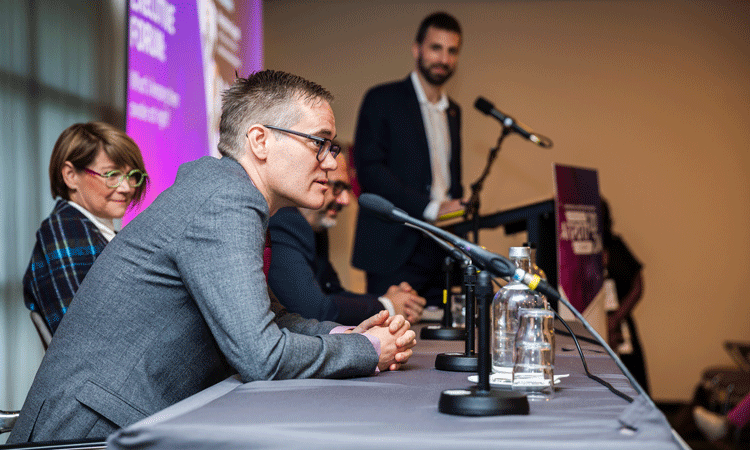

L-R: Chris Woodroofe, Managing Director of Manchester Airport; Johanne Gallant, President & CEO of Fredericton International Airport; Piervittorio Farabbi, Chief Operations Officer of Tirana International Airport; and Thomas Romig, Chief Operations Officer of Brussels Airport. C: IAR.
The evolving geopolitical landscape presents another layer of complexity. Heightened security measures, fluctuating travel restrictions, and the potential for trade disruptions, necessitate agility and adaptability in airport operations.
Finally, economic pressures loom large. Inflationary trends, labour shortages and the imperative for revenue diversification challenge airports to maintain financial stability while investing in essential infrastructure upgrades.
The talent conundrum: attracting and retaining a skilled workforce
Piervittorio suggested that offering housing near the airport could be a solution to attract and retain employees.
The panel then turned its attention to the critical issue of talent acquisition and retention. Airports face a dual challenge: attracting the next generation of aviation professionals while adapting to the evolving expectations of the existing workforce.
Tirana Airport in Albania has experienced phenomenal growth and has seen passenger numbers increase by 200% since 2019, reaching 9.5 million passengers. While this is a positive development, it has created challenges in terms of capacity and staffing.
Panellists stressed the importance of engaging with young people early on, showcasing the diverse and rewarding career paths available within the aviation ecosystem. Initiatives such as Manchester Airport Group’s “AeroZone” programme, which introduces school children to airport operations, aim to spark interest and nurture future talent.


C: IAR.
What’s interesting now is how the power dynamic in the job market has shifted, as Johanne Gallant, President and CEO of Fredericton International Airport noted: “People now are really interested… when they’re coming to interviews, they’re interviewing you.” Prospective employees are increasingly discerning, prioritising factors such as diversity and inclusion, sustainability commitments, and work-life balance. And in fact, Johanne went on to say: “These days I’m finding I’m spending a lot of time in human resources. Things have really shifted for us after the pandemic and there’s been a big change in the job market and the expectation now is that you can work from home. Balancing this with the people who have to be on-site creates a bit of conflict which can be difficult to navigate.”
Adapting to these evolving expectations necessitates a cultural shift within the industry. Airports must embrace flexible work arrangements where feasible and foster an inclusive and supportive work environment that resonates with a diverse workforce.
Piervittorio suggested that offering housing near the airport could be a solution to attract and retain employees. He believes this could attract individuals who might not otherwise be able to afford to live and work in the area.
Diversifying revenue streams: beyond the traditional model
The panel delved into strategies for diversifying airport revenue streams, acknowledging the limitations of relying solely on aeronautical and passenger-related revenues.
Airlines possess a wealth of data that, when responsibly and ethically utilised and shared, can enhance passenger experiences and unlock new revenue potential for airports.
Chris highlighted the Manchester Airport Group’s success in establishing subsidiary businesses that offer services like airport lounges and car park booking engines, expanding revenue generation beyond their airports.
Leveraging passenger data to create new commercial opportunities presents another avenue for diversification. Airlines possess a wealth of data that, when responsibly and ethically utilised and shared, can enhance passenger experiences and unlock new revenue potential for airports.
Panellists also discussed the possibilities of utilising airport land for non-aeronautical ventures. However, Johanne noted that renting airport land out to companies does not generate a lot of revenue – it generates mostly jobs: “At the end of the day, it is the passenger that generates the most revenue.” While Piervittorio, COO of Tirana Airport, described plans for on-site hotel development.
A vision for the future: advice for aspiring airport leaders
In closing, the seasoned executives shared invaluable advice for aspiring airport leaders, encapsulating the essential qualities needed to thrive in this dynamic and demanding industry.
Chris underscored the importance of work-life balance and mental wellbeing, advocating for hobbies that provide respite from the pressures of the job.
Johanne championed the pursuit of joy in the workplace, suggesting that cultivating a positive and engaging work environment can alleviate stress and foster a sense of purpose.
Piervittorio believes in leading by example and in showing appreciation for his staff and making them feel valued. He tries to be present on the ramp at 6:00am sometimes to show solidarity and support for his team.
Piervittorio eloquently captured the essence of leadership in the aviation industry: “Just love the job, because you won’t feel the pressure because I definitely don’t… if you love the idea that what we are doing collectively is ensuring that this neural network for the earth keeps us physically connected, then I think the pressure will go away.”
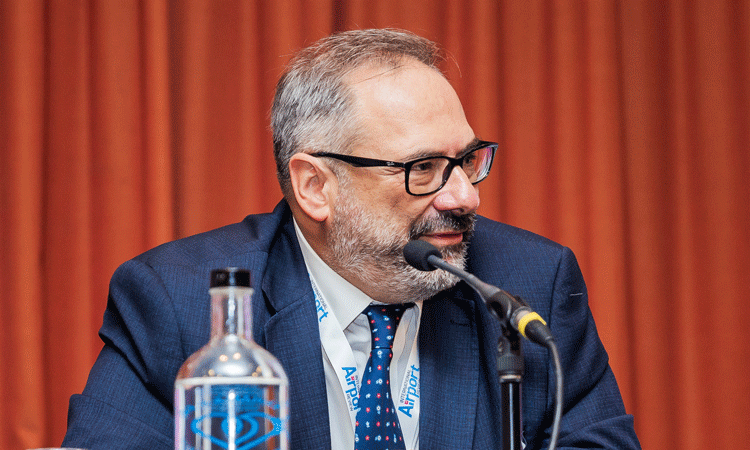

C: IAR.
This sentiment resonated deeply, underscoring the vital role airports play in connecting people and cultures, facilitating global trade and driving economic prosperity.
The Airport Executive Forum keynote panel provided a compelling and insightful exploration of the challenges and opportunities facing the aviation industry. The panellists’ candid discussions and practical advice offered a valuable roadmap for aspiring airport leaders, illuminating the path towards a sustainable, resilient and interconnected future for aviation.
Feeling like you missed out? Well, you did! Register here for International Airport Summit 2025 and ensure you don’t suffer from FOMO again next year!
Register here
Related topics
Capacity, Data, Economy, Emissions, Funding and finance, International Airport Summit, Non-aeronautical revenue, Passenger experience and seamless travel, Recruitment and training, Security, Sustainability, Sustainable Aviation Fuel (SAF), Workforce
Related airports
Brussels Airport (BRU), Fredericton International Airport (YFC), Manchester Airport (MAN), Tirana International Airport (TIA)
Related organisations
Related people
Chris Woodroofe, Johanne Gallant, Piervittorio Farabbi, Thomas Romig



